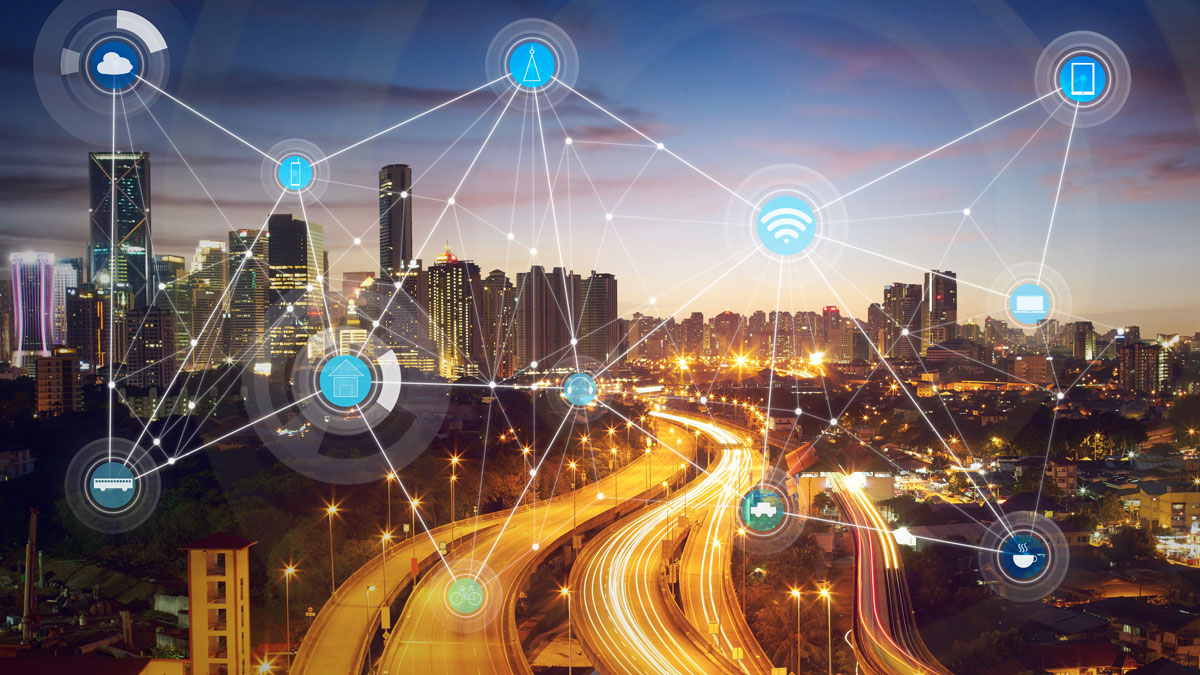Urban areas worldwide are undergoing a transformation, driven by the integration of advanced technologies and innovative solutions. These “smart cities” leverage data, connectivity, and cutting-edge infrastructure to enhance the quality of life for their residents, promote sustainability, and improve efficiency in various sectors. This article delves into how smart cities are reshaping urban living and the significant impacts they have on modern society.
What Are Smart Cities?
Smart cities utilize technology and data analytics to optimize city functions, improve services, and connect with citizens. Key components of smart cities include:
Internet of Things (IoT): Networks of connected devices collect and share data to improve infrastructure and services.
Artificial Intelligence (AI): AI helps analyze data to make real-time decisions and predictions.
Sustainable Energy Solutions: Renewable energy sources and smart grids reduce carbon footprints.
Smart Mobility: Advanced transportation systems, including autonomous vehicles and smart public transport, ease congestion and reduce pollution.
Enhancing Quality of Life
Smart cities focus on enhancing the daily lives of their inhabitants through various means:
Efficient Transportation:
Real-time traffic management systems optimize traffic flow and reduce congestion.
Smart public transport with GPS tracking and mobile apps improve convenience and accessibility.
Autonomous vehicles offer safe and efficient travel options.
Sustainable Living:
Smart grids and renewable energy sources, such as solar and wind power, decrease reliance on fossil fuels.
Energy-efficient buildings and smart thermostats reduce energy consumption and costs.
Waste management systems with smart bins optimize collection routes and recycling efforts.
Improved Public Services:
Smart healthcare systems enable remote monitoring and telemedicine, improving access to medical care.
Smart water management systems monitor usage and detect leaks, ensuring efficient water distribution.
Enhanced public safety with smart surveillance and emergency response systems.
Citizen Engagement:
Digital platforms and mobile apps facilitate communication between residents and city officials.
Online services streamline access to government services and information.
Community apps promote local events, volunteering, and civic participation.
Boosting Economic Development
Smart cities are hubs for innovation and economic growth. They attract businesses and talent by providing a modern, efficient, and sustainable environment. Key factors include:
Entrepreneurship and Startups: Smart cities support tech startups with incubators, accelerators, and funding opportunities.
Job Creation: The development and maintenance of smart infrastructure create new job opportunities in various sectors.
Investment Attraction: Advanced infrastructure and services attract investments from global companies and industries.
Promoting Environmental Sustainability
Smart cities are at the forefront of environmental sustainability efforts. They aim to reduce carbon emissions, enhance resource efficiency, and create greener urban spaces. Initiatives include:
Green Buildings: Construction of energy-efficient buildings with sustainable materials.
Smart Lighting: LED streetlights with motion sensors reduce energy consumption.
Urban Green Spaces: Development of parks and green rooftops to improve air quality and reduce urban heat islands.
Case Studies of Smart Cities
Several cities around the world have become pioneers in the smart city movement, demonstrating the potential of this innovative approach:
- Barcelona, Spain: Known for its smart traffic management and digital citizen services.
- Singapore: Renowned for its smart healthcare and integrated city-wide sensors.
- San Francisco, USA: Leader in sustainable energy and smart mobility solutions.
Challenges and Future Prospects
While smart cities offer numerous benefits, they also face challenges such as data privacy concerns, high implementation costs, and the need for robust cybersecurity measures. However, as technology continues to advance, the potential for smart cities to transform urban living is boundless.
- What is a smart city? A smart city uses advanced technologies, data analytics, and connected devices to improve infrastructure, services, and the overall quality of life for its residents.
- How do smart cities enhance transportation? Smart cities enhance transportation through real-time traffic management, smart public transport systems, and the integration of autonomous vehicles.
- What are some examples of sustainable practices in smart cities? Examples include renewable energy sources, smart grids, energy-efficient buildings, and smart waste management systems.
- How do smart cities promote economic development? Smart cities promote economic development by attracting businesses and talent, supporting startups, creating job opportunities, and attracting global investments.
- What challenges do smart cities face? Challenges include data privacy concerns, high implementation costs, and the need for robust cybersecurity measures to protect against potential threats.
Conclusion
Smart cities represent the future of urban living, where technology and innovation come together to create more efficient, sustainable, and livable environments. As more cities adopt smart solutions, the benefits will become increasingly evident, making urban areas more attractive and resilient for future generations.




